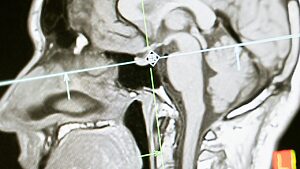Codependent relationships are complex and often challenging to recognize, as the signs can be subtle. In this blog, we’ll delve into the concept of codependency, exploring its definition, common characteristics, and the impact it can have on individuals and their relationships. By gaining insight into codependency, we can identify and address unhealthy relationship patterns.
Defining Codependency
Codependency refers to a dysfunctional relationship dynamic in which one person excessively relies on another for emotional support, validation, and a sense of self-worth. This behavior can manifest in various relationships, such as romantic partnerships, friendships, and family ties. In codependent relationships, one individual often prioritizes the needs, desires, and happiness of the other over their own, sacrificing their well-being in the process.
Characteristics of Codependent Relationships
Codependent relationships are marked by specific telltale signs and behaviors, including:
a) Low Self-Esteem: Codependents often struggle with low self-esteem and seek validation and approval from their partner or loved ones.
b) Enabling Behavior: Codependents may enable destructive behaviors, such as addiction, in their partner by making excuses or covering up the consequences.
c) Lack of Boundaries: Individuals in codependent relationships have difficulty setting and maintaining healthy boundaries, leading to emotional and mental exhaustion.
d) Difficulty Expressing Emotions: Codependents may suppress their own emotions to avoid conflict or rejection.
e) Fear of Abandonment: The fear of being alone or abandoned can drive codependents to stay in unhealthy relationships, even when they are harmful.
Causes and Roots of Codependency
Codependency often originates from early life experiences and learned behaviors. Childhood experiences in dysfunctional families, where one or both parents may have had addiction or mental health issues, can contribute to codependent tendencies. In such environments, individuals may develop coping mechanisms that prioritize caretaking and self-sacrifice to maintain stability and avoid conflict.
The Impact of Codependency
Codependent relationships can have detrimental effects on both individuals involved. The codependent person may neglect their own needs and well-being, leading to emotional exhaustion and resentment. Meanwhile, the dependent partner may develop a sense of entitlement, relying on the codependent for emotional support without learning to meet their own needs. This imbalance can perpetuate unhealthy relationship patterns and hinder personal growth and self-discovery.
Breaking Free from Codependency
Recognizing and addressing codependent behaviors is essential for breaking free from this unhealthy relationship dynamic. Seeking therapy or counseling can provide valuable insights and tools to set boundaries, build self-esteem, and cultivate healthier relationships based on mutual respect and support.
Building Healthy Relationships
Overcoming codependency requires self-awareness and a commitment to personal growth. By learning to prioritize self-care, set boundaries, and communicate openly, individuals can develop healthier relationship dynamics that promote emotional well-being and mutual fulfillment.
Codependent relationships can be challenging to recognize, but understanding the characteristics and impact of codependency is crucial for personal growth and healthier connections. By fostering self-awareness and seeking support when needed, individuals can break free from codependent patterns and cultivate fulfilling and balanced relationships.













